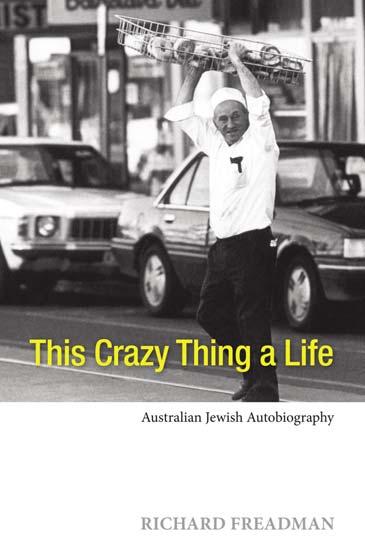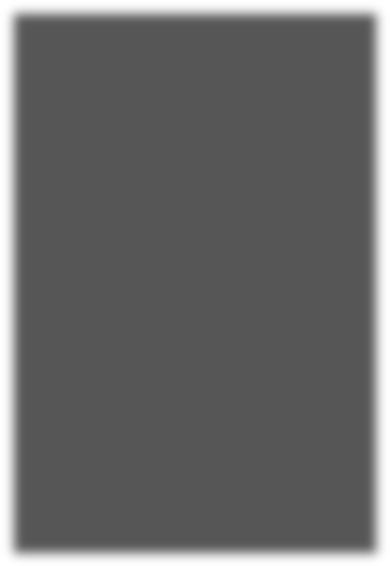
5 minute read
This Crazy Thing a Life – Review
Serge Liberman
In its structure, the book is a triptych, the first part dealing with some major issues that attend the writing of Jewish autobiography as a genre; the second, containing essays focusing upon seven very specific writers and a separate essay on the Makor Library’s “Write your Story” initiative; while the third section contains extracts from a considerable number of the works that have passed through his hands.
Advertisement
This Crazy Thing a Life: Australian Jewish Autobiography,


by Richard Freadman. University of Western Australia Press, 2007, 301p., $39.95
It is sobering to reflect that the past ten years – certainly the past fifteen – have seen the publication of more autobiographical books, monographs and essays by Australian Jews than the entire preceding two hundred years since their first appearance as convicts with the First Fleet in 1788. These include autobiographies of politicians and political activists, businessmen and communal leaders, artists, writers and composers and, most recently, of Holocaust survivors and immigrants to Australia, this group constituting the bulk of the 300 full-length autobiographies and 400 shorter pieces that have appeared in assorted anthologies. It is to this last group that Professor Freadman gives the greatest weight in his book on Jewish autobiography, This Crazy Thing a Life, reflecting not only the industriousness of Jewish autobiographers, but also the sheer volume of reading that Professor Freadman has had to do in mastering a subject that is at once so wide-ranging and multi-dimensional.
The first of its three parts is an extensive discussion of Australian autobiographical writing set against the background of Australian Jewish history, population growth and the profound demographic, cultural, ideological, religious, organisational and political changes that have taken place here from the prewar predominantly Anglo-Saxon Jewish life to its profound transformation as an immediate consequence of the post-war influx of Eastern and Central European Jews as refugees. These migrations, attended by the experiences of many of uprootedness, stateless wandering, transplantation, refugee status and final citizenship gave rise to concerns about how to live in this new and unfamiliar diaspora, an issue rendered all the more acute with the establishment of the Jewish State through its opening for the Jew of a conscious choice where he should live out his future.
If living in the diaspora has proved for many to be a complicated dilemma, subject to diverse definitions enumerated in the book, what might one say of another question that Professor Freadman wrestles with – as do many of the authors referred to – on being challenged by another long-debated issue, “What is Jewishness?” - one corollary of which is “What is Australian Jewish autobiography?” - and where is the dividing line between Australian Jews and Jewish Australians, these appearing to be in considerable part defined by where these Jews appear to locate themselves along a spectrum from being resolutely Jewish first and foremost at the one end, grading through accommodation, integration, acculturation, marginalisation and indifference to things Jewish, culminating in assimilation or even hostility at the other.
To these two themes – the one reflecting the larger changes that have taken place in Australian Jewish life and the other telling of the individual responses to them by the writers who have told their stories – Professor Freadman raises a third, best introduced by Elie Wiesel, as cited by him: “If the Greeks invented tragedy, the Romans the epistle, and the Renaissance the sonnet, our generation invented a new literature, that of testimony”. This opens upon a current trend in contemporary criticism with a jargon all its own, among which terms like postmodernism and deconstructionism rank highly, and which, put at its simplest, questions the capacity of memory and language to accurately narrate the past, thereby also questioning the ability to do so with absolute truth and completeness – an argument which, when taken to the extreme, gives balm to Holocaust deniers moving in to challenge the veracity of the survivors’ testimonies. Mercifully, in discussing what to the lay public are complex literary and philosophical themes, Professor Freadman, while being no less scholarly, writes with a lighter hand. He is lucid, articulate and particularly accessible as he takes up arms against these views, approaching the memoirs with what he calls a humanist and empirical approach, analysing them not with dense and opaque academese, but more as a commentator, elucidator, guide and companion to help his readers to see more deeply into the works he discusses.
While this is true of the whole book, this is still more strikingly evident in its second part, in which Professor Freadman teases out a generous succession of diverse elements, insights and associations that a lay reader might so easily miss, as in the works of Jacob Rosenberg, Arnold Zable, the Brett sisters, Doris and Lily, Mark Baker, David Martin, Andrew Riemer and Susan Varga, from whose writings he draws out and discusses aspects of trauma and recall, imagination and craft, biblical and secular connections, multicultural perspectives, one-time gods that have failed and complex family relationships ranging from attachment to alienation. Here, as stated earlier, Professor Freadman appends a separate essay on the Makor Library
“Write your Story” initiative, to whose instructors and editors involved in guiding people to write their memoirs and having them published he pays much-deserved credit.
The last part of the book, as already noted, is an anthology of selected extracts from the works of some sixty-six writers, who tell variously of life as it was in the “Old World”, of survival through the Holocaust in the camps, ghettos, forests, partisan groups and in hiding, followed by accounts of living, as it were, in limbo as displaced persons, of migration, and of settlement in Australia, each of these aspects touching upon relations between the generations, the authors’ sense of belonging or, conversely, of continuing wariness and insecurity as Jews, their degree of Jewish observance, and other matters relating to gender and careers.
Although this is a book on autobiography which, by its very nature, concentrates on times and experiences of the recent and remoter past, it is yet not confined to past times and places. Given its scope and its depth, with all of it at once erudite, lucidly-written and widely accessible, and complemented by an extensive bibliography of autobiographies and other sources, it is at once both a model and a fine starting-point for further authoritative studies on Australian Jewish literature for anyone interested in pursuing this field (in which altogether negligible work has yet been done on its home turf) and is further a guide and encouragement to anyone else who has a story to tell – not only of the Holocaust and of migration, which form the greater part of this book, but of the next stages of our lives as they evolve here both within the Jewish milieu and in our wider engagement with Australian society, this being ripe ground for new narratives to emerge laced with the aspirations, achievements, ambivalences, wrestlings with identity and continuity, and the perplexities and complexities that we, as individuals and as a community, continue to confront daily in our own lives.
Professor Freadman’s This Crazy Thing a Life thereby becomes a book of potential value to all – to individuals, schools, libraries and appropriate university faculties both at home and abroad.
Disclaimer
The opinions expressed in Centre News are those of the authours and do not necessarily reflect those of the magazine editor or editorial committee. While the Centre News welcomes ideas, articles, photos, poetry and letters, it reserves the right to accept or reject material. There is no automatic acceptance of submissions.








